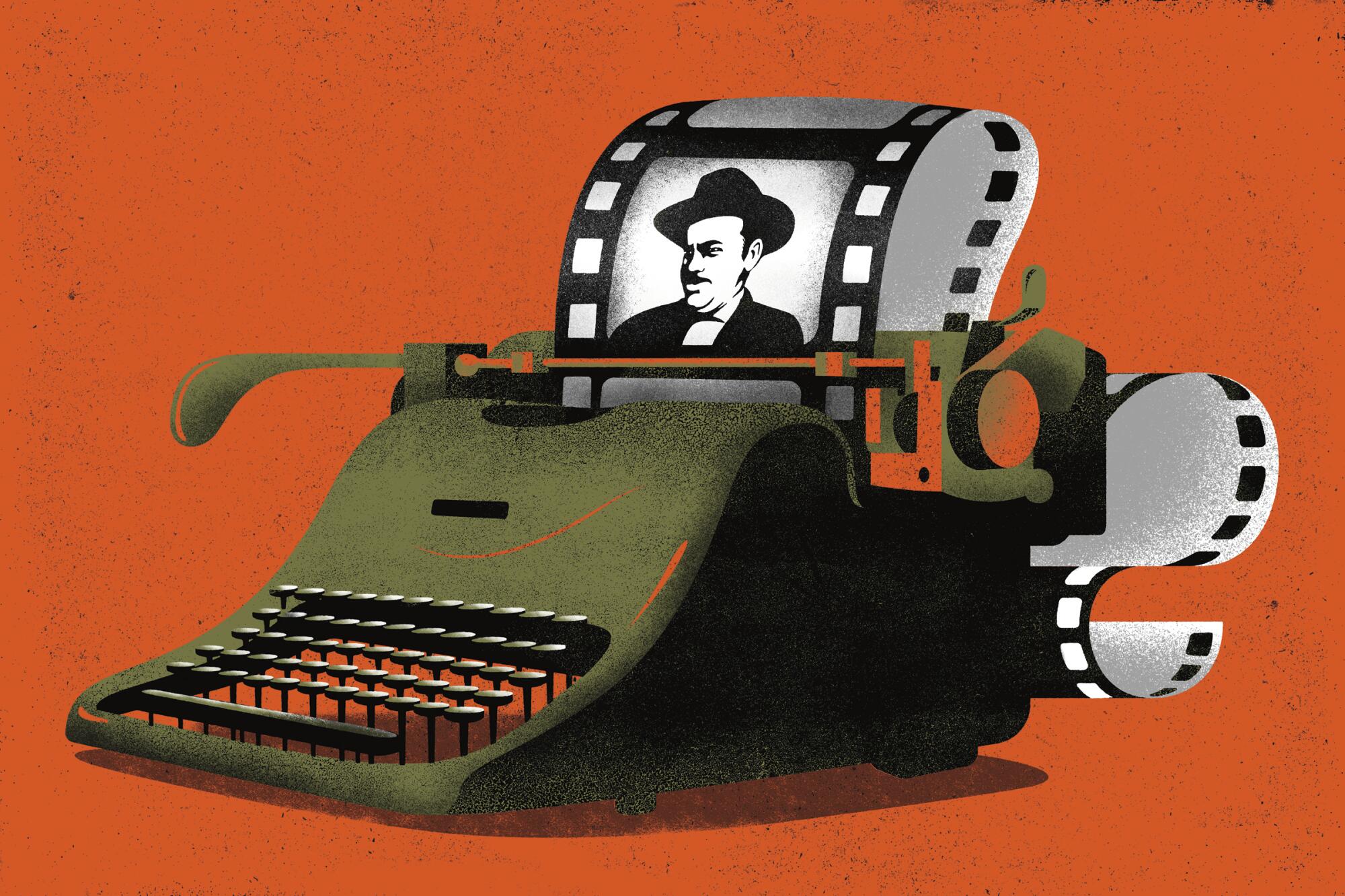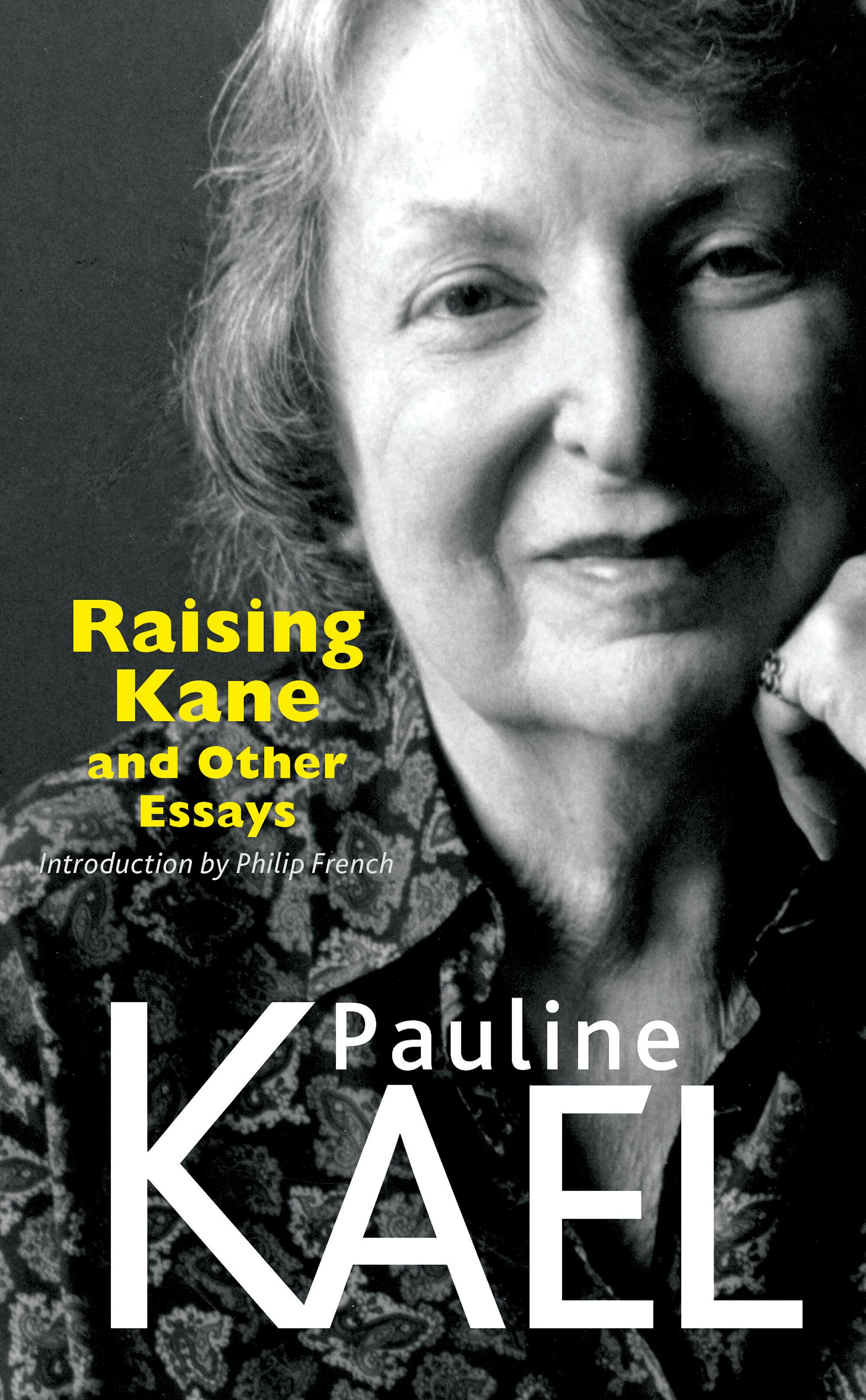
- Share via
Did Orson Welles get too much glory for “Citizen Kane”? Absolutely, New Yorker film critic Pauline Kael insists in this novella-length fire-starter about the making of the greatest movie of all time. (We can save that skirmish for another day.) As Charles Foster Kane, a sendup of newspaper tycoon William Randolph Hearst, Welles embodied the image of a vainglorious Great Man. But Welles’ success, according to Kael, meant he also needed to be taken down a peg.
The Ultimate Hollywood Bookshelf
“Raising Kane” ranks No. 40 on our list of the best Hollywood books of all time.
“Orson Welles wasn’t around when ‘Citizen Kane’ was written,” Kael chided. The 25-year-old prodigy was busy doing radio plays with the Mercury Theatre and promoting his forthcoming film debut with a studio that wanted only one name — by Orson Welles! — on the posters. RKO’s advertising campaign lauded “Citizen Kane” as the creation of “a one-man band.” Meanwhile, the actual author of the masterpiece — the movie’s co-screenwriter, Herman J. Mankiewicz — was tucked away in a rest home in Victorville, dictating the script to his secretary.

Kael’s Mankiewicz was a pitiable figure, a self-destructive alcoholic nursing a broken leg and an injured ego. She hoisted him up as one of Hollywood’s unheralded heroes, a brilliant quipster who quietly contributed his wit to everything from “Duck Soup” to “The Wizard of Oz.” Mankiewicz’s work often went unacknowledged, but he’d helped give the 1930s comedies the rat-a-tat rhythm of he and his friends ping-ponging jokes around the Algonquin Round Table. Much of the New York literary clique followed Mankiewicz to California when the industry shifted from silents to sound and filmmakers suddenly needed to hand their beautiful faces brilliant things to say. Together, this band of bohemians molded the modern movie business into what Kael hails as “wisecracking, fast-talking, cynical-sentimental entertainment.”
Decades later, David Fincher’s biopic “Mank” would back up Kael’s sympathetic sketch of Mankiewicz as the forgotten man. But pretty much everyone else considers her essay a hit job, a ferocious attack on a cinematic Goliath. “Raising Kane” took down Welles as handily as if she’d slipped a grenade in her slingshot. After the piece’s publication, Welles’ reputation tumbled — although the height from which he fell was his own fault. “Cinema is the work of one single person,” Kael quotes Welles as boasting, adding that he’d also bragged of making an easy transition from theater to film, as “there was nothing about camerawork that any intelligent man couldn’t learn in half a day.”
Such hubris put Welles in Kael’s crosshairs. (On his slighting of cinematographer Gregg Toland, she snarked, “Welles, like Hearst, and like most very big men, is capable of some very small gestures.”) Yet Kael’s real target was Village Voice film critic Andrew Sarris, her longtime rival who had staked his reputation on the auteur theory — the exaltation of the director über alles. To pull off her thesis, she refused to interview anyone who might have disagreed with her, including Welles himself. Anyone reading “Raising Kane” for the first time should remember that it’s merely one side in an intellectual tug-of-war.
Subsequent counter-essays flung darts at Kael’s biased research. (“How the hell do you call out a lady movie critic at dawn?” Welles groaned in a letter quoted in Peter Bogdanovich’s rebuttal, “The Kane Mutiny.”) But “Raising Kane’s” value transcends the question of whether Kael was correct. (She kinda was, she kinda wasn’t.) What matters is she started a fight that forced all film fans to consider, and defend, their definition of a great director: Is it a big boss enforcing their will upon a set, or a humble collaborator who brings out the best in their team?
For the peacemakers, it’s possible to twist “Raising Kane” into a defense of Welles’ later career, often waved off as not living up to the promise of his first film. If the boy genius puffed himself up too much, then it’s a kindness to forgive him for not measuring up to artificially inflated expectations. And despite the outrage, it’s clear that Kael admired “Citizen Kane” and the man who marshaled it into existence. “Orson Welles brought forth a miracle,” she wrote. Bless his heart.
Nicholson is a film critic and the host of the podcast “Unspooled.” Her first book, “Tom Cruise: Anatomy of an Actor” was published by Cahiers du Cinema, and her second, “Extra Girls,” will be published by Simon & Schuster.
More to Read
Sign up for our Book Club newsletter
Get the latest news, events and more from the Los Angeles Times Book Club, and help us get L.A. reading and talking.
You may occasionally receive promotional content from the Los Angeles Times.










